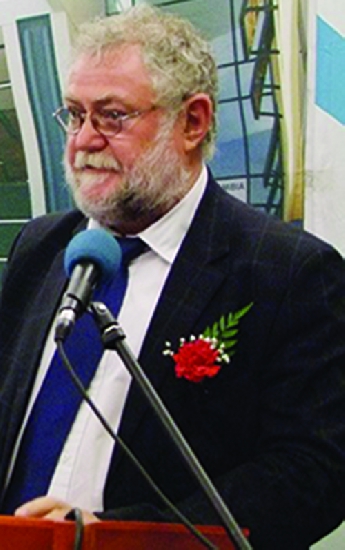THE Minister of Trade and Industry has said the Southern African Development Community (SADC) – Economic Partnership Agreement (EPA) Group has reached a consensus to abandon the interim EPA negotiations and go for full EPA negotiations.
The interim EPA contains a clause providing for continued negotiations on trade in services, investment, agriculture, rules of origin, sanitary and phytosanitary provisions, technical barriers to trade, customs and trade facilitation, and trade-related rules. All these issues are subject to further discussions.
The SADC-EPA Group has identified various outstanding issues which it wished to re-open in the framework of the full EPA discussions, which include the trade coverage of the agreement, export taxes, agricultural safeguards, and rules of origin.
“The issues where no agreement between us and the EC could be reached centered around the loss policy space for industrial development, and regional economic integration,” said Calle Schlettwein in the National Assembly on Tuesday.
CONSULTING
He was responding to claims by the Chief Executive Officer (CEO) of Meatco, Vekuii Rukoro who attacked the government last week in a newspaper article for prolonging the signing of the EPA with the European Union (EU), and accusing it of “not consulting” with stakeholders on the EPA negotiations. Rukoro further described Namibia’s stance to preserve policy space and flexibilities which will allow the government to introduce measures that will enable to transform the economy and build a strong industrial base, as a “political game”.
“Namibia is not alone in the negotiations of EPAs,” said Schlettwein.
He explained that the Heads of State and Government of the Africa, Caribbean and Pacific (ACP) group of countries at their 7th Summit held in December 2012 in Malabo, Equatorial Guinea declared in the Sipopo Declaration that instead of serving as “instruments of development, the EPAs have undermined the regional integration processes” and contain provisions “that severely limit ACP countries’ policy space”.
UNREASONABLE DEMANDS
Both the ACP Group and African Union (AU) have come out strongly against the manner in which the EU is putting unreasonable demands on the ACP countries in the EPA process, and their positions on EPAs were presented at the 9th World Trade Organisation (WTO) Ministerial Conference held in December 2013 in Bali, Indonesia.
Seven of the 15 SADC members are negotiating EPAs with the EU as the SADC-EPA Group.
These countries are Angola, Botswana, Lesotho, Mozambique, Namibia, Swaziland and South Africa. South Africa initially participated as an observer and in a supportive capacity, but formally joined negotiations in 2007.
The other eight SADC states – Democratic Republic of Congo, Madagascar, Malawi, Mauritius, Seychelles, Tanzania, Zambia and Zimbabwe – are negotiating in other regional EPA configurations.
Botswana, Lesotho, Mozambique and Swaziland signed the Interim EPA in June 2009, while Angola, Namibia and South Africa did not sign, citing some concerns on certain provisions of the Agreement.
Although some countries have signed the EPA, none of the SADC countries who have signed the EPA ratified it. The second phase of the negotiations is ongoing on Trade in Services and Investment to conclude a full EPA. The next SADC-EPA negotiation is expected to take place next week.
On the claim that the Government does not consult with and take on board the views of the private sector during the EPA negotiations, Schlettwein said the claim is not reflecting the factual situation.
The private sector has organised itself and formed the Agricultural Trade Forum (ATF) and the National Trade Forum (NTF) whose memberships include all the major producers of meat and agro products and all agricultural unions, and delegates of these bodies are part of the national negotiating team, he explained.
“These forums have been established to serve as a conduit of private sector inputs into the negotiations. The government through the Ministry of Trade and Industry even provides funding towards the operations of the NTF. Meatco itself assisted with funds for the ATF,” said the trade minister.
ALTERNATIVE EXPORTS
On the issue of alternative export markets, Schlettwein said the government has succeeded in securing export markets for locally produced products. The very preferential market access Namibia has enjoyed for beef, fish and grapes in the EU was a result of Government initiatives.
“We have subsequently negotiated and secured preferential access to the Norway market for our beef and the markets of European Free Trade Association (EFTA) countries and SADC for all other products as a result of the SACU-EFTA Free Trade Agreement and the SADC Free Trade Agreement, respectively,” he said.
Progress has also been made with respect to exports of the Namibian beef and mutton to China and the Russian Federation, while other initiatives are ongoing to also open up the Hong Kong, United Arab Emirates (UEA), Qatar and the Republic of Korea, said the minister. – Nampa
Stay informed with The Namibian – your source for credible journalism. Get in-depth reporting and opinions for
only N$85 a month. Invest in journalism, invest in democracy –
Subscribe Now!







